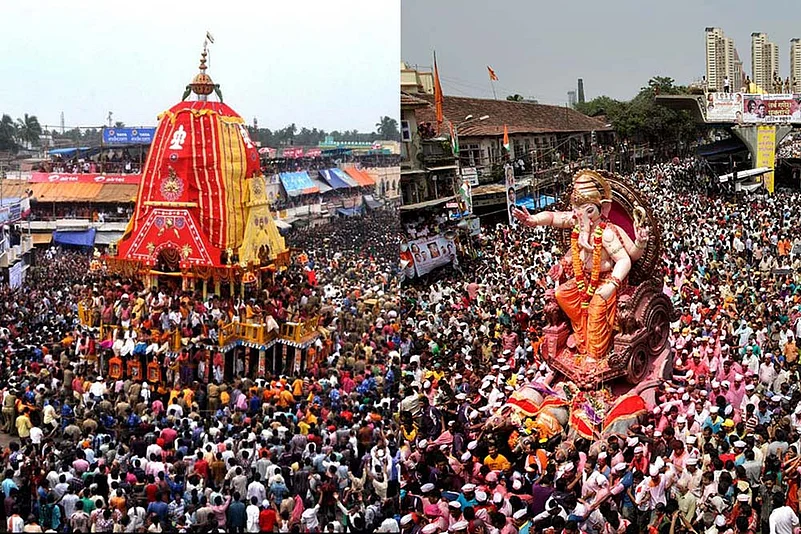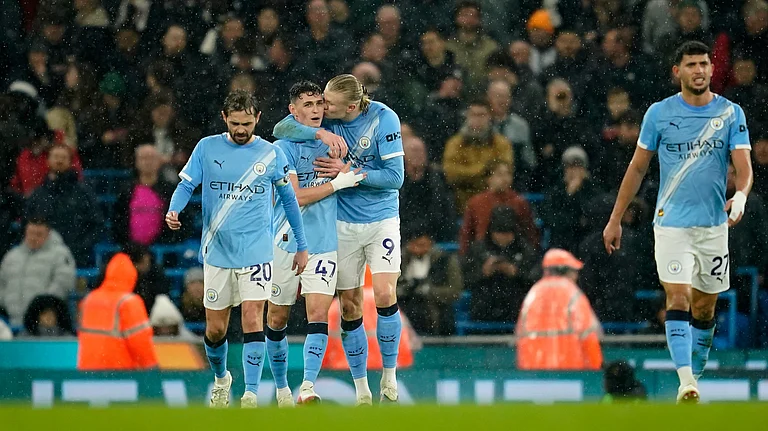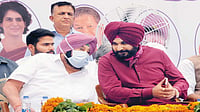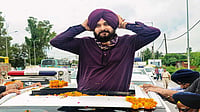Yes, we saw some newly invented faux festivals—Balcony Diwas No. 1 and 2. But the colours leached out of India’s real festival calendar this spring—especially if the celebrations were of the sort that revolved around congregating. We just about sneaked in a subdued Holi, on March 10—both Prime Minister Modi and Delhi’s Arvind Kejriwal abstained. The first big event to be officially cancelled was a mega show in Ayodhya for Ram Navami, on April 2. The long phase of Lenten austerity didn’t really seem to end on Easter, April 12. For the cluster of traditional New Years around April 14—from Vishu to Bihu—all the festivities stayed at home.
As the month turned to May, the ilanji tree outside Thrissur’s Vadakkumnathan temple stood lone witness to a strangely empty vista—no percussion from paradise, no ecstatic lakhs. The Pooram had been cancelled, perhaps for the first time since 1962, the war with China. The chariots are being readied at Jagannath, but will they roll on June 23? Puri, in the green zone, hopes so. Madurai saw a quiet Chithirai—this Monday, Goddess Meenakshi opted for a spartan wedding (even best man Vishnu cancelled his appearance). Shiva, meanwhile, is feeling lonely up in Rajasthan’s Hadoti region—it’s the practice here for unmarried men to kidnap Parvati idols, to prod the Lord into granting them a consort too, after which they return the divine loot. This year, no shaadis, so all the Parvatis are still in the hijacker’s hands! Another goddess, the storied Kamakhya of Guwahati, also awaits an empty hush around the Ambubachi mela in June. The million footfalls will be missing for the first time in remembered history. Before that, around May 23-24, an Eid will go by where communion will have to be minimised—the traditional embrace forsworn. Already, Ramzan is bereft of the aroma of haleem and the delights of the nocturnal food bazaars.
If everything else had been normal, we’d have missed an ancillary political festival—the month of Ramzan is also, after all, the season of political iftar parties. Who hosted? Who didn’t…these were matters of routine headlines. It was as expected of senior Congress leaders to throw lavish iftars, to showcase their ‘secular’ credentials, as it was of Hindutva icons of the BJP to skip such displays of religious pluralism. BJP leaders who did host iftars did so after careful consideration. In his earlier stint as Madhya Pradesh CM, Shivraj Singh Chouhan rarely missed hosting an iftar party at his official residence—even donning the skull cap on occasion. His softer way was seen as a sign of great statesmanship. In Bihar, Nitish Kumar too embraced iftar politics—it may have chagrined his saffron allies, but here the Bihar CM was more in the line of his old socialist pals like Laloo and Mulayam.
Then there was the rara avis: the Sonia Gandhi iftar. Whenever it did happen, her party leaders would be in a tizzy; the media worked overtime to decode ‘the message’; and the inner coterie worked meticulously to plan every detail, the list of invitees, who would get to share her table, and yes…the list of people to exclude! A Ramzan pot-pourri of religious leaders, public intellectuals and ‘secular’ politicians’ always made it. In 2015, her iftar was designed as a statement of Opposition unity against the nationwide saffron surge. Nitish, having then severed ties with the BJP, was promptly sent an invite to Sonia’s high table. Three years later, Rahul Gandhi pretty much botched up his first iftar as Congress president, shifting the event from the modest precincts of the party HQ at 24, Akbar Road to the five-star Taj Palace. Also, unlike Sonia’s rainbow coalitions, he only called some party colleagues and UPA representatives—no actual rozedars, nor anyone from the SP, BSP, Left. (Rahul ended up spending most of his evening chatting with Pranab ‘Citizen’ Mukherjee.) But an iftar of iffy quality is still an iftar. Modi not only ended an established tradition of the PM hosting one, he even skipped the President’s iftar—his cabinet too duly abstained. After Pranab Mukherjee demitted office, the iftar hosted by the Rashtrapati Bhavan too became history. And you cannot miss what was already missing.
ALSO READ


























